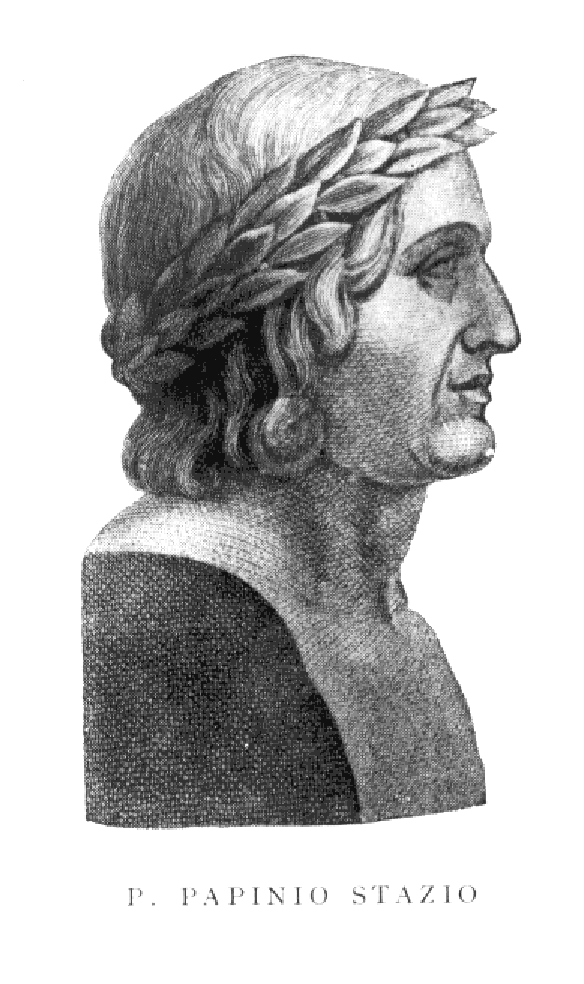“The towers shine in a larger blue, and the portals bloom with a mystic light. Silence was ordered and mute in terror fell the world. From on high he begins. His holy words have weight heavy and immutable and the Fates follow his voice.”
Radiant majore sereno
culmina et arcano florentes lumine postes.
postquam jussa quies siluitque exterritus orbis,
incipit ex alto: grave et inmutabile sanctis
pondus adest verbis, et vocem fata sequuntur.
Source: Thebaid, Book I, Line 209
